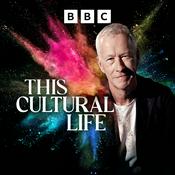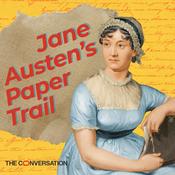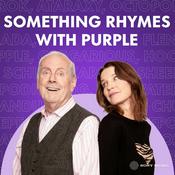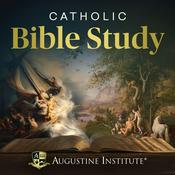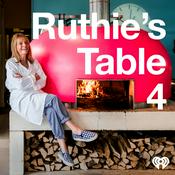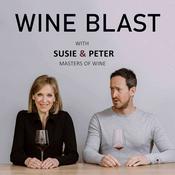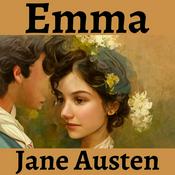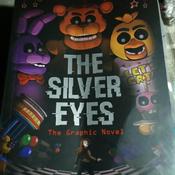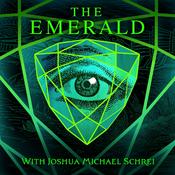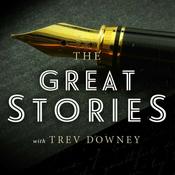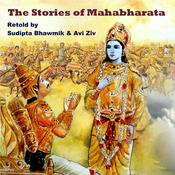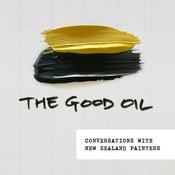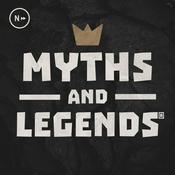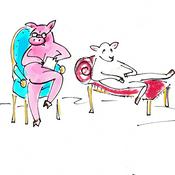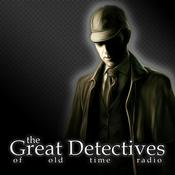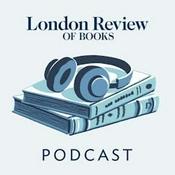196 episodes
Narrative Poems: 'Venus and Adonis' and 'The Rape of Lucrece' by William Shakespeare
16/2/2026 | 19 mins.Like Christopher Marlowe, William Shakespeare made good use of his time off when the theatres were shut for plague in 1593. 'Venus and Adonis' appeared in quarto that year and become by far the most popular work Shakespeare published in his lifetime, running to ten editions before his death (compared to just four for Romeo and Juliet). In this episode, Seamus and Mark consider the many ways in which Shakespeare’s poem displays its author's remarkable originality, from its peculiar reshaping of the Ovidian myth into a tale of comic mismatch, to its surprising diversion into the psychology of grief. They then look at his disturbing follow-up, 'The Rape of Lucrece' (1594), in which a chilling depiction of self-conscious, premeditated evil anticipates characters such as Iago and Macbeth.
Non-subscribers will only hear an extract from this episode. To listen to the full episode, and to all our other Close Readings series, sign up:
Apple Podcasts: https://lrb.me/applesignupnp
Other podcast apps: https://lrb.me/scsignupnp
Further reading in the LRB:
Stephen Orgel on Shakespeare's poems: https://lrb.me/npshakespeare01
Barbara Everett on the sonnets: https://lrb.me/npshakespeare02- In The Light Eaters (2024), Zoë Schlanger reports from the frontiers of botany, where researchers are discovering forms of sensing, signalling and responding that challenge our ideas of plants as passive life forms. Meehan Crist and Peter Godfrey-Smith explore Schlanger’s account of new research into plant behaviour. They examine the case for plant agency – and the far more speculative claims for plant consciousness – and attempt to make sense of some astonishing discoveries.
Non-subscribers will only hear an extract from this episode. To listen in full, and to all our other Close Readings series, sign up:
Directly in Apple Podcasts: https://lrb.me/applecrnature
In other podcast apps: https://lrb.me/closereadingsnature
Get the book: https://lrb.me/schlangercr
Further reading from the LRB:
Francis Gooding on mushroom brains:
https://www.lrb.co.uk/the-paper/v43/n10/francis-gooding/from-its-myriad-tips
Andrew Sugden on the life of a leaf:
https://www.lrb.co.uk/the-paper/v35/n03/andrew-sugden/hairy-spiny-or-naked
Ian Hacking on human thinking about plants:
https://www.lrb.co.uk/the-paper/v13/n04/ian-hacking/living-things
Francis Gooding on the hidden life of trees:
https://www.lrb.co.uk/the-paper/v39/n04/francis-gooding/thinking-about-how-they-think
Next episode: ‘Blue Machine’ by Helen Czerski
https://lrb.me/czerskicr - ‘He opened him up and found nothing.’ These are the doctor’s findings at Charles Bovary’s autopsy near the end of 'Madame Bovary'. Taken on its own, it’s a simple medical observation. In the context of Emma Bovary’s tragic story, it serves as a condemnation not just of Charles’s emptiness but the whole provincial world Flaubert has been describing.
In the second part of his analysis of 'Madame Bovary', James Wood considers the major episodes leading to Emma’s death and argues that what made Flaubert’s realism dangerous was not its depictions of infidelity, but its use of cliché to expose French bourgeois lives constructed entirely of received ideas and second-hand emotions.
Non-subscribers will only hear an extract from the episode. To listen in full, and to all our other Close Readings series, sign up:
Apple Podcasts: https://lrb.me/applecrwaor
Other podcast apps: https://lrb.me/closereadingswaor
Further reading in the LRB:
Julian Barnes on translations of Madame Bovary: https://lrb.me/realismep201
Michael Wood on 'Sentimental Education': https://lrb.me/realismep202 - The year London was founded will always be disputed, but the most recent archaeological evidence suggests the Romans had created the first settlement on the north bank of the Thames by 48 AD, five years after their invasion. That early military encampment expanded to become a busy, cosmopolitan supply base until it was burned down in the Boudican revolt of 60 AD.
In the first episode of her series tracing the history of London, Rosemary Hill is joined by Dominic Perring, archaeologist and author of London in the Roman World, to examine the development of Londinium over its tumultuous first century, during which it grew to a population of 30,000 and it acquired all the recognisable Roman landmarks – forum, basilica, baths, amphitheatre – before facing its second great destructive event around 125 AD.
Non-subscribers will only hear an extract from this episode. To listen in full, and to all our other Close Readings series, sign up:
Apple Podcasts: https://lrb.me/applesignuplr
Other podcast apps: https://lrb.me/scsignuplr
In their next episode, Rosemary and Dominic consider Roman London’s second revival and the emergence of new belief systems and monuments before its eventual abandonment by Rome at the start of the fifth century.
Reading by Duncan Wilkins
Read more in the LRB:
Christopher Kelly on Roman London: https://lrb.me/londonep1roman2
Tom Shippey on Roman Britain: https://lrb.me/londonep1roman1 - 'Hero and Leander' was published in 1598, and anyone who came across it in a stationer’s shop in Elizabethan London would have known that its author was dead, killed in a brawl in Deptford in 1593. Christopher Marlowe’s sensational life as playwright and spy is matched by the wit, sophistication and eroticism of his eccentric retelling of Ovid’s myth, based on a sixth-century version by Musaeus. Seamus and Mark begin their new series by looking at the playful but often troubling treatment of desire in a poem that contains one of the most explicit depictions of sex in English poetry.
Non-subscribers will only hear an extract from this episode. To listen to the full episode, and to all our other Close Readings series, sign up:
Apple Podcasts: https://lrb.me/applesignupnp
Other podcast apps: https://lrb.me/scsignupnp
Further reading in the LRB:
Michael Dobson on the life of Marlowe https://lrb.me/np1marlowe1
Hilary Mantel on the murder of Marlowe: https://lrb.me/np1marlowe2
Charles Nicholl on Faustus: https://lrb.me/np1marlowe3
More Arts podcasts
Trending Arts podcasts
About Close Readings
Close Readings is a new multi-series podcast subscription from the London Review of Books. Two contributors explore areas of literature through a selection of key works, providing an introductory grounding like no other. Listen to some episodes for free here, and extracts from our ongoing subscriber-only series.
How To Subscribe
In Apple Podcasts, click 'subscribe' at the top of this podcast feed to unlock the full episodes.
Or for other podcast apps, sign up here: https://lrb.me/closereadings
RUNNING IN 2026
'Who's afraid of realism?' with James Wood and guests
'Nature in Crisis' with Meehan Crist and Peter Godfrey-Smith
'Narrative Poems' with Seamus Perry and Mark Ford
'London Revisited' with Rosemary Hill and guests
Bonus Series: 'The Man Behind the Curtain' with Tom McCarthy and Thomas Jones
ALSO INCLUDED IN THE CLOSE READINGS SUBSCRIPTION:
'Conversations in Philosophy' with Jonathan Rée and James Wood
'Fiction and the Fantastic' with Marina Warner, Anna Della Subin, Adam Thirlwell and Chloe Aridjis
'Love and Death' with Seamus Perry and Mark Ford
'Novel Approaches' with Clare Bucknell, Thomas Jones and other guests
'Among the Ancients' with Emily Wilson and Thomas Jones
'Medieval Beginnings' with Irina Dumitrescu and Mary Wellesley
'The Long and Short' with Mark Ford and Seamus Perry
'Modern-ish Poets: Series 1' with Mark Ford and Seamus Perry
'Among the Ancients II' with Emily Wilson and Thomas Jones
'On Satire' with Colin Burrow and Clare Bucknell
'Human Conditions' with Adam Shatz, Judith Butler, Pankaj Mishra and Brent Hayes Edwards
'Political Poems' with Mark Ford and Seamus Perry
'Medieval LOLs' with Irina Dumitrescu and Mary Wellesley
Get in touch: [email protected]
Podcast websiteListen to Close Readings, This Cultural Life and many other podcasts from around the world with the radio.net app
Get the free radio.net app
- Stations and podcasts to bookmark
- Stream via Wi-Fi or Bluetooth
- Supports Carplay & Android Auto
- Many other app features
Get the free radio.net app
- Stations and podcasts to bookmark
- Stream via Wi-Fi or Bluetooth
- Supports Carplay & Android Auto
- Many other app features

Close Readings
Scan code,
download the app,
start listening.
download the app,
start listening.

